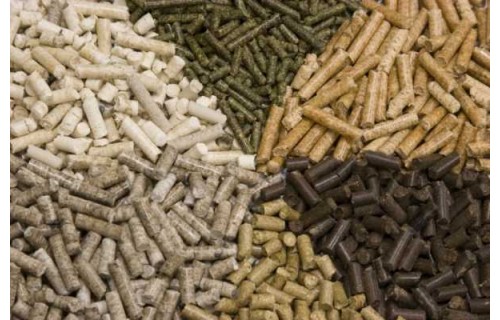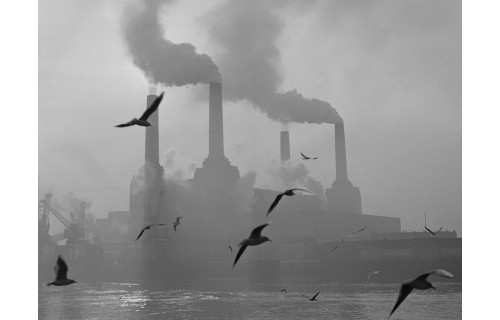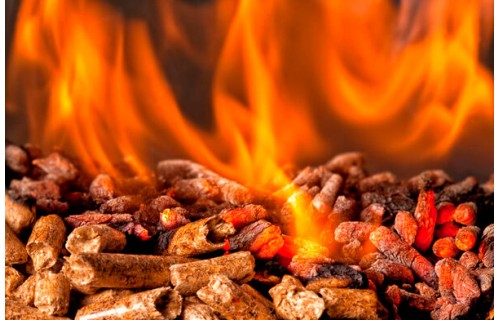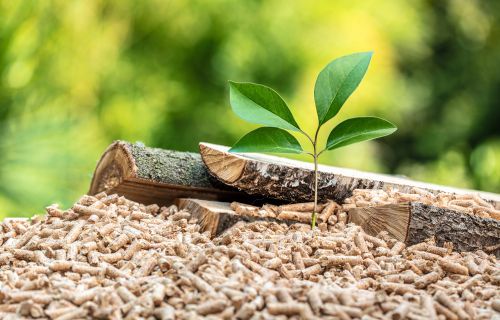Briquette or coal? Which fuel to choose?

The choice of fuel for a domestic stove, boiler or garden grill can be quite a challenge, and the multitude of options can make your head spin. When looking for guidance, you may come across differing opinions on the internet - supporters of briquettes or enthusiasts of charcoal. So let us take a closer look at these two fuel materials.
Briquette and charcoal - production
A briquette is a fuel material most often occurring in the form of blocks of compressed, fine-grained solid fuel. For its production, sawdust, peat, hard coal dust, straw, as well as other agricultural production waste are used. The above-mentioned materials are fed into a briquetting machine where they undergo the briquetting process consisting of pressing finely ground waste under high pressure without the use of binding agents.
Charcoal, sometimes also called carbon black, is a fuel created as a result of the dry distillation of wood. The basic method of obtaining charcoal is burning - currently carried out in steel retorts of very large volume. Unlike briquettes, charcoal loses 80 percent of the mass of the initial substance. For comparison: With an initial mass of 5 kilograms of biomass a pellet mill is able to produce 3.3 kg of pellet while after burning 5 kg of wood we obtain one kilogram of charcoal.
Application of these fuels
A briquette as a fuel material has many types and applications. It is burned in tiled stoves, heating boilers or fireplaces. Coal briquettes are also used for recreational purposes, e.g. for grilling. Due to its properties, it also serves as a starter fuel - one to which the target fuel is added after ignition.
Charcoal is currently used only for recreational or cultural purposes. Due to its fragility, tendency to dust and disproportionately large volume in relation to its mass carbon black is increasingly rarely used as fuel for a stove or boiler. This fuel however has many supporters in the field of gastronomy. Thanks to its characteristic smell and natural origin, charcoal is perfect for grilling and smoking - it definitely enhances the taste of many dishes, and a trained nose will easily be able to detect its “woody” aroma.
Efficiency of briquette vs. efficiency of charcoal
Briquettes are one of the more efficient heating fuels considering the ease of its production. Fuel obtained by passing straw through a briquetting machine has a calorific value between 15 and 17 MJ/kg. For comparison, this indicator for hard coal is about 30MJ/kg, for lignite about 6MJ/kg, and for pellet about 19MJ/kg. More about pellet efficiency you can learn from our article here.
The energy value of charcoal exceeds the capabilities of briquette. For carbon black it is 30MJ/kg. It is worth noting here the definitely lower density of charcoal, which means that despite its high energy value it is an impractical fuel requiring a lot of storage space. The density of charcoal is 0.2 - 0.5 g/cm3 while the density of fireplace briquette oscillates around 1.2g/cm3. In practice, this means that a ton of charcoal can take up as much space as six tons of briquette. In terms of storage and transport, this is an advantage difficult to overestimate.
Briquette and charcoal - eco fuels?
In the era of intensifying climate change and the annual fight against smog during the winter season, an increasingly discussed issue is low emissions of fuels. The so-called carbon footprint, i.e. the amount of CO2 released into the atmosphere during combustion, is one of the criteria for choosing heating materials for many consumers. Apart from carbon dioxide, the reduction of other harmful chemical substances entering the air we breathe through the chimneys of our homes is also important.
Both in the case of briquettes and charcoal we can speak of low-emission fuels belonging to the group of the least harmful heating materials for the environment. It is worth noting, however, that charcoal is most often produced from trees specially intended for this purpose. For these needs, areas of other vegetation are often cut down. Such a form of managing plantations reduces forest biodiversity and does not favor the coexistence of various species of plants and animals. On the other hand, during the growth process, trees intended for burning produce oxygen, which in a way balances their carbon footprint.
In this respect, briquette, especially the one for which waste is fed into the briquetting machine during its production, seems more environmentally friendly. A positive feature of briquetted biomass is burning with a small amount of smoke and 99-percent combustion of the briquette mass. In the case of most briquettes, the ash being a product of combustion has a mass of only one percent of the initial mass of the fuel material.
Briquette or coal - which is healthier?
Many homeowners wonder, what is healthier: burning briquettes or coal?
The short answer is: briquette releases fewer harmful substances during combustion than coal, therefore it is a healthier fuel.
However, the full answer is more complex.
Commercial briquette is most often wood briquette or straw briquette.
Wood briquette is the healthiest of these three mentioned fuels. Burning wood briquette generates fewer suspended particles that are harmful to the respiratory system. Straw briquette may generate more of these particles, as well as other pollutants such as nitrogen oxides (NOx) and sulfur dioxide (SO2), which contribute to smog formation.
Despite this straw briquette still performs better than coal. Among the main pollutants emitted by coal are suspended particles, nitrogen oxides (NOx), sulfur dioxide (SO2) and heavy metals such as mercury and lead.
These substances have a harmful direct impact on human health, potentially causing diseases of the respiratory, circulatory and nervous systems.
They also affect it indirectly: contributing to the formation of smog, acid rain and other environmental problems.
In summary:
A briquette that is simple to produce is definitely a fuel with many applications. Thanks to various types of briquetting machines, this fuel can be produced from many different substrates. It is a cheap, relatively ecological and efficient heating method. Charcoal today is rather a relic of the past, still popular in less developed regions of the world. Despite this, it still finds its recreational applications, and its characteristic smell for many of us is an inseparable element of Polish holiday leisure.
In a direct comparison of these two fuels, briquette seems to be unmatched in all categories, especially in terms of efficiency, versatility and ecology.
















